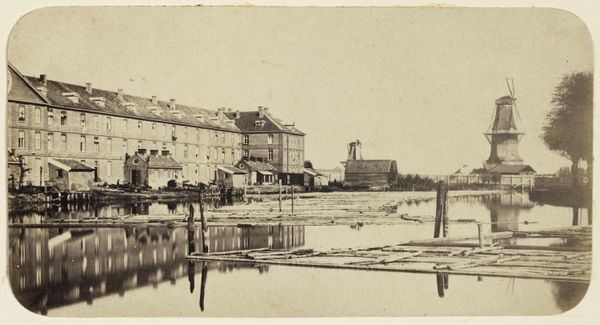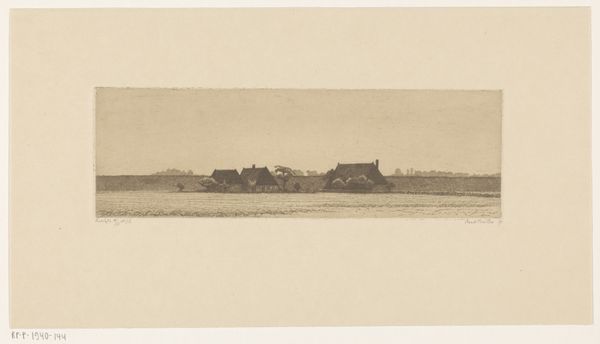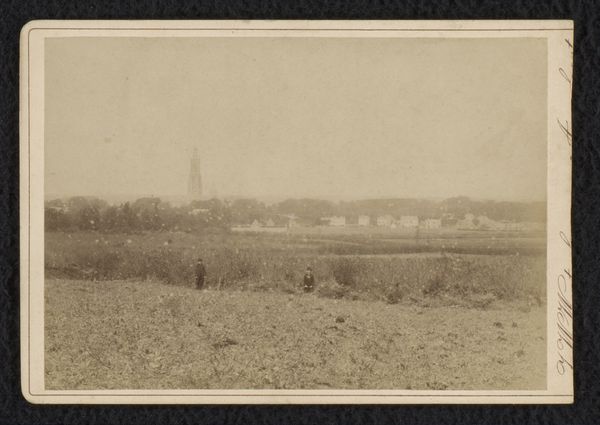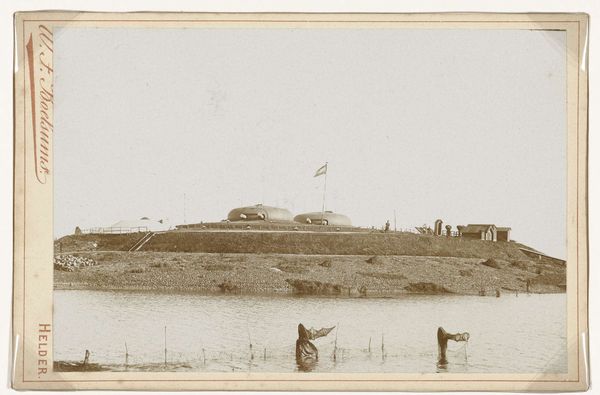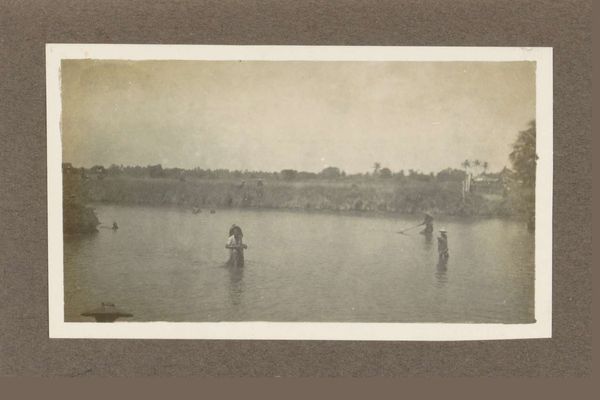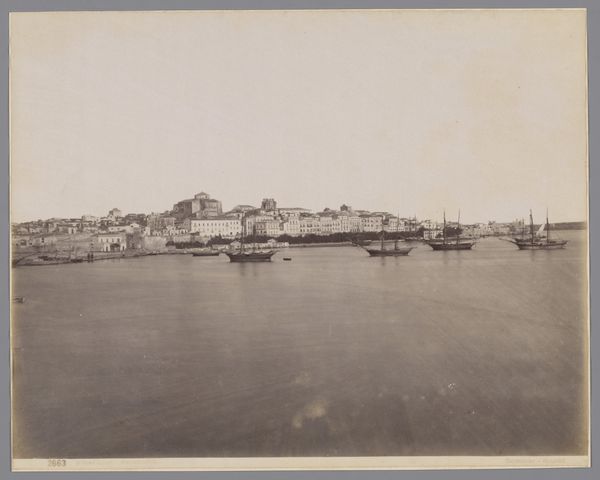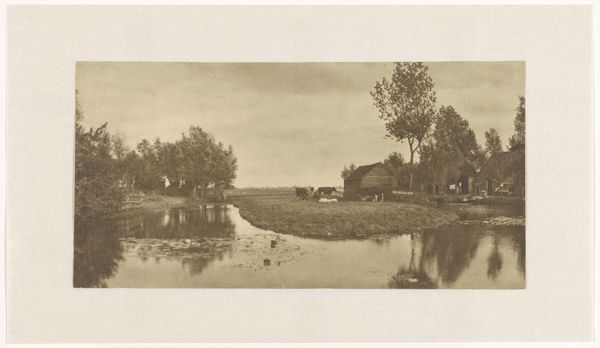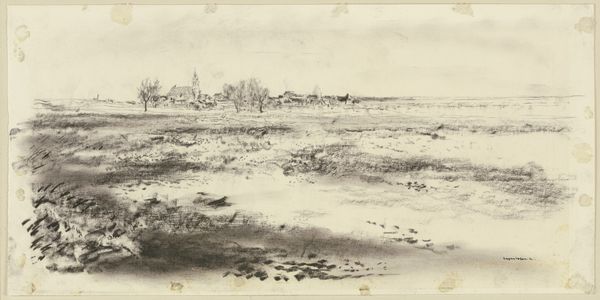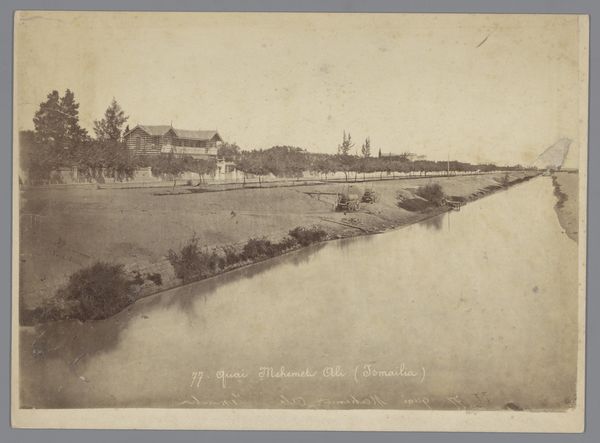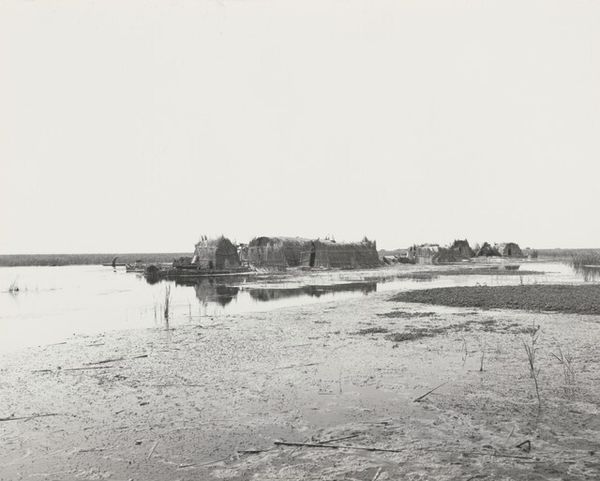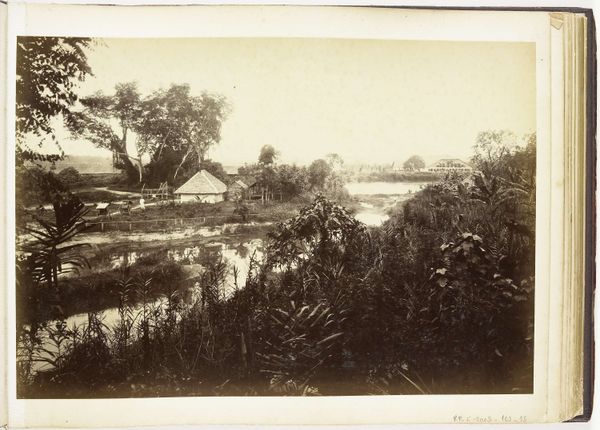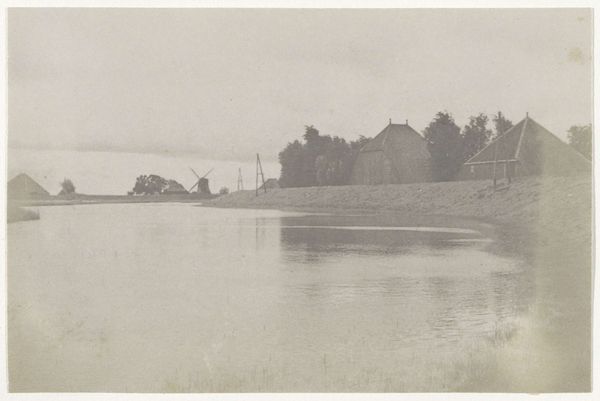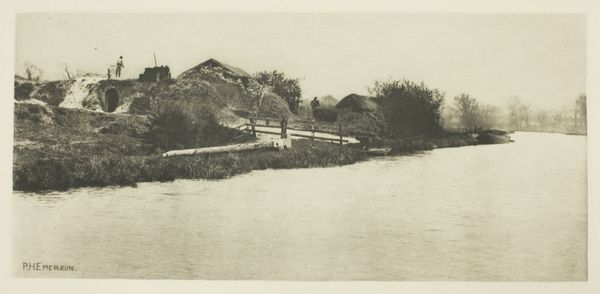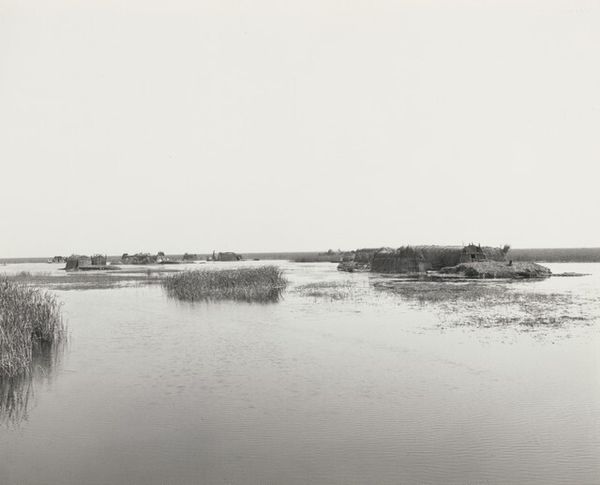
photography
#
lake
#
impressionism
#
landscape
#
photography
#
coloured pencil
#
cityscape
Dimensions: height 103 mm, width 147 mm
Copyright: Rijks Museum: Open Domain
Curator: Welcome. Before us is a photograph entitled "Gezicht op Seehausen am Staffelsee, Duitsland," attributed to Bernhard Johannes, and dating roughly from 1880 to 1900. It presents a cityscape receding into a serene lake. Editor: Serene indeed. The stillness is almost palpable. Notice how the light delicately textures the surface of the water, broken only by the vertical thrust of reeds in the foreground. It is a study in soft tonalities and balanced composition, really quite meditative. Curator: The timing is fascinating. Photography in this era was rapidly evolving, becoming more accessible, but still charged with cultural significance. These early landscape photographs presented not just places, but ideas about place and progress, particularly as tied to Germany’s burgeoning national identity. Editor: I agree that there are narrative considerations here. Still, if we consider only the elements presented before our eyes, notice how the subdued palette contributes to the photograph’s tranquil affect. The artist deftly uses shadow and light to draw the eye towards the receding structures. The lake reflects everything, inverting the real space. Curator: The image evokes the mood of an early picture postcard, almost begging you to imagine life within it. You get a feel for how people thought about their own world in this period—these small villages held an idyllic symbolism. This sort of photo probably reinforced values of tradition, home, and community that served a cultural purpose. Editor: Right, a carefully constructed image that promotes certain narratives, but is undeniably harmonious in terms of form. There is a clear attempt here to resolve elements within a well organized spatial matrix. It is also a reminder of the beauty found in simplicity, in the reduction of detail and tonality to its barest minimum. Curator: It is compelling to see how such artistic strategies intertwine with photography's broader role within societal frameworks. Editor: It truly gives us so much to think about, especially regarding structure and meaning, as it is perceived by audiences both past and present.
Comments
No comments
Be the first to comment and join the conversation on the ultimate creative platform.
